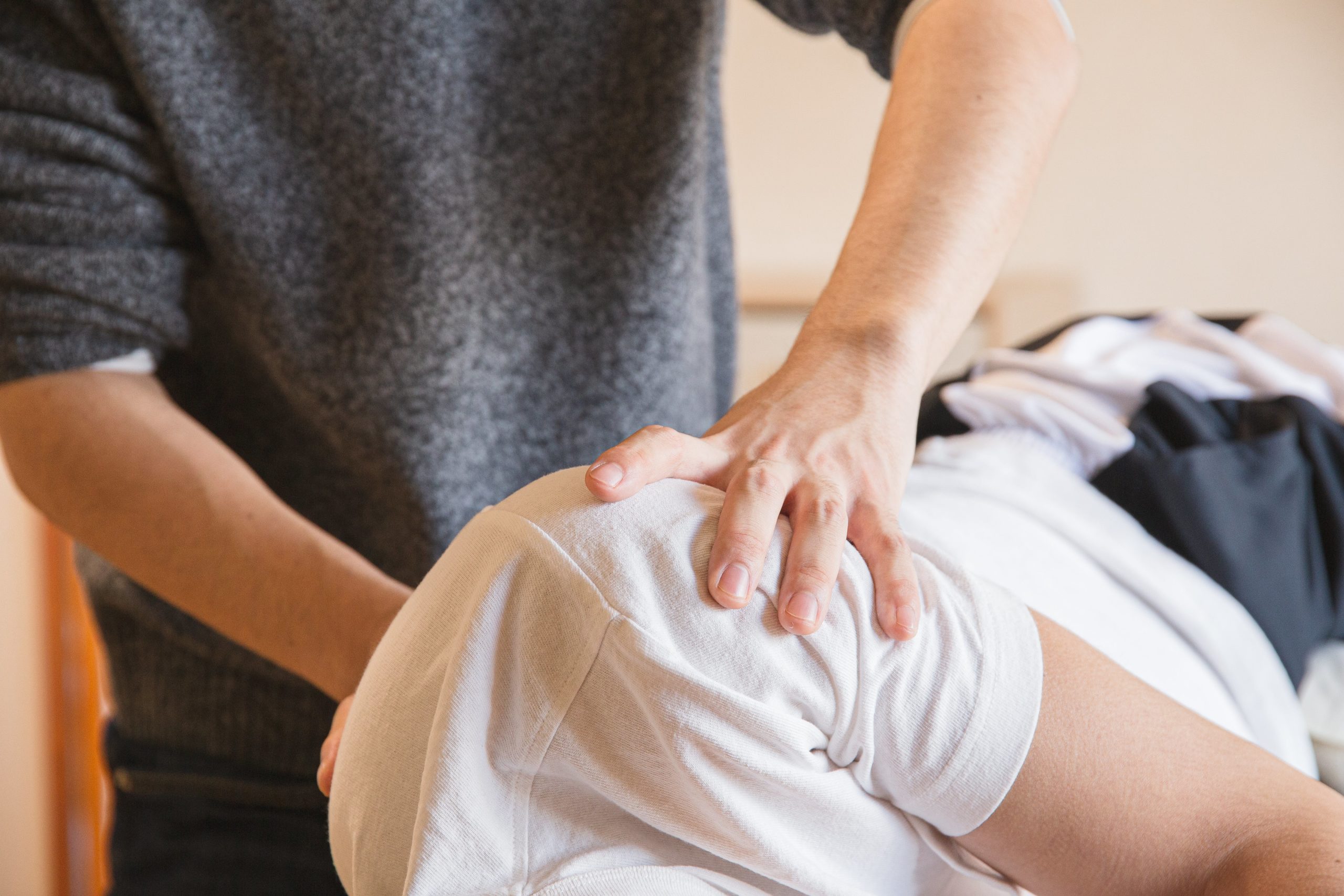We regularly see people with shoulder pain in our clinics. The shoulder joint (official name ‘glenohumeral’) has to function in conjunction with the surrounding muscles, ligaments and joints. Because of this complexity, the most effective way to approach osteopathy for shoulder pain is to take a whole-body approach.
The anatomy of your shoulders
The name for the whole area around your shoulder is the ‘shoulder girdle’. This is made up of 3 joints and one ‘pseudo’ joint. Because of its complex interconnected structure, shoulder pain is often linked to pain and stiffness in the neck or mid-back.
A muscle called the latissimus dorsi runs from the base of your low back to the front of your shoulder. In this way your shoulder pain can be caused by an issue elsewhere in your body.
Here are a few common causes of shoulder pain we see in our clinics.
Rotator Cuff Strains
If your rotator cuff is strained or torn, the pain you feel will be located in your shoulder and upper arm. The pain gets worse when you lie on your affected side or use the muscles there and typically you won’t be able to raise your arm over your shoulder. There are four rotator cuff muscles that support and stabilise your upper arm bone (humerus) into your shoulder joint. Tendons also attach from your muscles around your shoulder joint.
Repetitive movements with hunched shoulders can increase the likelihood of experiencing rotator cuff strains and tears.
Frozen Shoulder (Adhesive Capsulitis)
With a frozen shoulder, the tissue that surrounds your shoulder will be painful and grow gradually stiffer. The pain can affect your sleep and ability to carry out day-to-day activities. Frozen shoulders can happen after an injury or infection, and also as a result of compensating for other areas of the body that are in pain or inflamed.
Referred Shoulder Pain
Referred shoulder pain arises from your neck and upper bac, and also internal organs such as your lungs, diaphragm, liver or gallbladder. Because of this possibility, our osteopaths will accurately assess and identify the cause of your shoulder pian in order to draw up a treatment plant.
It’s likely to be pain referred from your neck or upper back if these areas are also sore on movement. When these are not painful on movement, our osteopaths will also consider the possibility of referral from an internal organ.
Osteoarthritis
Osteoarthritis can cause a wearing down of the cartilage of the joint, which in turn leads to the two bones of the joint rubbing against each other. Other symptoms of osteoarthritis in the shoulder joint include swelling, stiffness, aching and sharp stabbing pains.
Acromioclavicular joint pain
Your shoulder girdle comprises of four joints:
- glenohumeral
- acromioclavicular (ACJ)
- sternoclavicular and
- scapulothoracic joints.
Your AC joint (ACJ) is where your acromion meets your clavicular (collar bone). These joints can become inflamed, painful to touch and move.
It is common for ACJ pain to be triggered by a fall or other injury, but sometimes poor posture can overburden the ACJ and cause the onset of inflammation of the joint.
Shoulder instability
This condition is fairly common in sportspeople who have been making repetitive movements that have stretched the ligaments of the shoulder, causing instability. To compensate for this, the rotator cuff muscles may tighten to offer more stability to the joint, resulting in pain and aches.
Shoulder Dislocation
When your upper arm comes out from its position in the shoulder joint, it can tear the muscles and ligaments in the area. Medical attention is needed to traction the joint. If dislocation happens once, it makes the area prone to it happening again. To prevent future injury our osteopaths can create a tailored rehab programme.
Book your osteopathy appointment now
The good news is that osteopathy for shoulder pain is an effective treatment. Our team can help you get back to your pain-free life as fast as possible. It couldn’t be easier to book your appointment with Osteo & Physio! Book a session via our app, website or call our friendly reception team on 0345 5577788.

